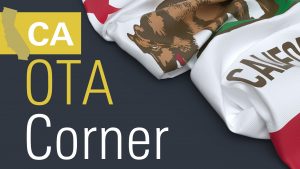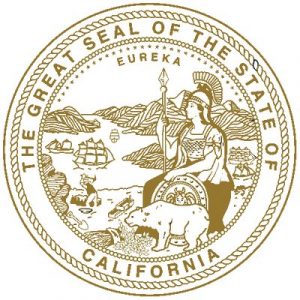Pillsbury SALT partner Carley Roberts will participate as a panelist on an upcoming CalTax Foundation webinar on Tuesday, September 10.

Pillsbury SALT partner Carley Roberts will participate as a panelist on an upcoming CalTax Foundation webinar on Tuesday, September 10.

Pillsbury SALT partner Jeffrey Vesely will present during WSPA’s virtual event on October 13. Continue Reading ›
Continue Reading ›
Pillsbury SALT partner Carley Roberts will participate in the CalTax Webinar series on August 24. The theme for the webinar is “How to Navigate the Appellate Process at the OTA.”

The California Office of Tax Appeals held the Franchise Tax Board abused its discretion in failing to abate interest for a 248-day delay caused by the FTB’s failure to assign a protest hearing officer to the taxpayer’s protest. Taxpayer wins involving interest abatement requests on appeal are fairly uncommon in California and even more uncommon in precedential opinions. This makes exploring a taxpayer’s recent win before the OTA especially worthy.
The FTB has discretionary authority to abate interest related to a proposed deficiency to the extent the interest is attributable in whole or in part to an unreasonable error or delay by an officer or employee of the FTB in performing a ministerial or managerial act. On appeal, the OTA only reviews FTB’s interest abatement determinations for abuse of discretion. This makes a taxpayer’s burden of proof on appeal much greater than the ordinary preponderance of the evidence standard. The taxpayer must show the FTB exercised its discretion “arbitrarily, capriciously, or without sound basis in fact or law.”
 The California Office of Tax Appeals will hold an informal interested parties meeting on April 3, 2020, to discuss proposed amendments to its rules for tax appeals. The proposed amendments are in response to feedback from public and internal parties after the OTA began operating under its permanent rules for tax appeals since January 2019.
The California Office of Tax Appeals will hold an informal interested parties meeting on April 3, 2020, to discuss proposed amendments to its rules for tax appeals. The proposed amendments are in response to feedback from public and internal parties after the OTA began operating under its permanent rules for tax appeals since January 2019.
One of the proposed amendments addresses the process to request a closed hearing when a CPA firm represents its attest client. The proposed amendment states the OTA “a closed hearing shall generally be granted” when a taxpayer provides a statement from the CPA firm and the taxpayer, signed under penalty of perjury by both parties, affirming: (1) the taxpayer is a current attest client of the CPA firm; (2) the taxpayer wants to be represented by the CPA firm at the oral hearing before OTA; (3) the taxpayer would like a closed hearing; and (4) the CPA firm affirms that it cannot represent the client unless the oral hearing is closed. When a request for a closed hearing is granted, the reason for the closed hearing, along with the names of the taxpayer and the representatives, will be noted on the hearing agenda. The proposed amendments do not address whether the briefing, hearing transcript, or opinion related to a closed hearing under such circumstances will be available to the public.
(This article originally was published by Law360 on January 16, 2020.)
The saga continues in Arizona v. California, Arizona’s U.S. Supreme Court challenge of California’s tax reach, but signs are strong it may be ending soon.
Last year, Arizona filed a motion to the court seeking to file a complaint against California under the court’s original and exclusive jurisdiction over controversies between states.1 Arizona contends California assesses and enforces its doing business tax (i.e., an $800 annual and minimum tax imposed on businesses doing business in the state) so expansively that it unconstitutionally “reaches out-of-state companies that do not conduct any actual business in California, and indeed have no connection to the state except for purely passive investment in California companies.”2
 The California Office of Tax Appeals (OTA)—in a 3-0 pending precedential opinion granting the Appeal of Jali, LLC—has rejected the Franchise Tax Board’s (FTB) 0.2 percent ownership threshold as the new bright-line standard for determining whether an out-of-state LLC member is actively “doing business” (and thereby required to file and pay tax) in California. The FTB relied upon Swart Enterprises, Inc. v. Franchise Tax Bd. (2017) 7 Cal.App.5th 497 (Swart) to deem Jali as actively doing business in California because its membership interest in an in-state LLC ranged between 1.12 to 4.75 percent, which “was well beyond the 0.2% Swart limit.” However, the OTA determined the FTB misconstrued Swart and found Swart was “squarely grounded on the relationship between the out-of-state member and the in-state LLC” and not simply based on ownership percentage. The OTA then evaluated Jali’s facts and found no evidence it had “any ability or authority, directly or indirectly, to influence or participate in the management or operation” of the LLC that conducted business in California.
The California Office of Tax Appeals (OTA)—in a 3-0 pending precedential opinion granting the Appeal of Jali, LLC—has rejected the Franchise Tax Board’s (FTB) 0.2 percent ownership threshold as the new bright-line standard for determining whether an out-of-state LLC member is actively “doing business” (and thereby required to file and pay tax) in California. The FTB relied upon Swart Enterprises, Inc. v. Franchise Tax Bd. (2017) 7 Cal.App.5th 497 (Swart) to deem Jali as actively doing business in California because its membership interest in an in-state LLC ranged between 1.12 to 4.75 percent, which “was well beyond the 0.2% Swart limit.” However, the OTA determined the FTB misconstrued Swart and found Swart was “squarely grounded on the relationship between the out-of-state member and the in-state LLC” and not simply based on ownership percentage. The OTA then evaluated Jali’s facts and found no evidence it had “any ability or authority, directly or indirectly, to influence or participate in the management or operation” of the LLC that conducted business in California.
(This article was originally published by Law360 on April 16, 2019.)
In recent years, many have openly criticized California for its income tax litigating position involving out-of-state companies that hold passive, minority interests in pass-through entities doing business in California. The state argues these out-of-state companies are doing business in California solely by virtue of their passive, minority investment in pass-throughs that conduct business in California. The state has lost the issue twice in the last two years. Most recently in September 2018 before an administrative appellate body in a nonprecedential decision involving a 25% passive ownership interest and the other in 2017 at the California Court of Appeal in a published decision involving a 0.2% passive ownership interest.